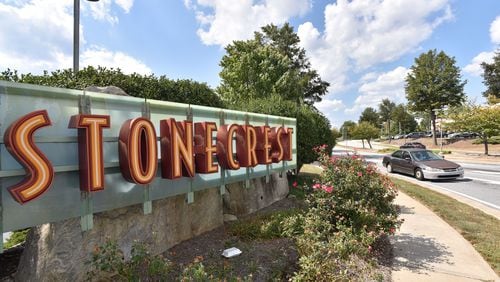Congratulations, South Fulton and Stonecrest — you're going to be cities!
Now what?
Both nascent municipalities have a lot of work to do before they launch in the spring. Before they can start their local governments — and hoped-for improvements for their communities — these cities will have to build an organization from the ground up.
They have to decide what services to offer, and how to offer them. Do they contract with the county police department, or take over the parks? Do they want to control planning and zoning? And before a government is formed next year, who, exactly, is making those decisions?
The legislation authorizing both new cities allows two years for the cities to transition services from the counties.
In Stonecrest, which includes 50,000 people in southeast DeKalb County, promoters of the cityhood effort intend to follow the model laid out by Tucker and other recently founded cities. They’ll likely start with a handful of services and outsource some government staffing to a private company.
Already, many residents and businesses want to become involved, said Jason Lary, president of Stonecrest Yes, a pro-city group. A community commission will form to draft a blueprint for Stonecrest’s City Council and mayor to consider after they’re elected March 21.
“Businesses are flooding our phones and emails right now,” Lary said. “In the first six months, you’re going to see a dramatic difference because people have been waiting in the wings to do business with us.”
After the election, Stonecrest will start with the three services it’s always planned: planning and zoning, code enforcement, and parks and recreation. City leaders could decide whether to add a police force if there’s enough tax funding to support it, which could be supplemented by $8 million annually the city would be projected to receive if DeKalb voters approve a special purpose local option sales tax (SPLOST) next year.
In South Fulton, with a population close to 100,000 people, the path isn’t as clear.
The county government is forming a transition team of its own, but leaders there aren’t yet sure who to talk to in the new city. Rep. Roger Bruce, D-Atlanta, has asked the governor’s office to put together a transition team to help guide South Fulton. Members of a group that pushed for South Fulton’s formation have planned sessions where they can get residents’ feedback about what they want from the new city.
“I’m tickled pink,” said Rodney Littles, co-chair of the South Fulton People’s Campaign. “I’m hopeful everyone will participate, if they voted for the city or not.”
Todd Long, Fulton County’s chief operating officer, said his team is “in desperate need of understanding what the desires of the new city are going to be.” While Fulton County has worked with four new cities, beginning in 2005 with Sandy Springs, there are questions that need to be answered.
“Decisions may be complicated in the months ahead, so we ask that you be patient,” Fulton Chairman John Eaves wrote to residents.
At Wednesday’s commission meeting, he pledged that the board is “fully behind the transitional effort.” The county will continue to maintain all of its services while the transition takes place, including police, parks and fire.
Still, residents who voted for South Fulton and those who were opposed to it are concerned about the new city’s finances. A fund that paid for services in what will be the new city will be mostly emptied when county government pays off the accrued leave of employees who will no longer have jobs in Fulton government.
In Stonecrest, the community commission will come together in December and make recommendations for key areas, including public safety, beautification, zoning, parks, city operations and economic development, said Joel Thibodeaux, the chairman of the commission.
When Tucker formed earlier this year, the same kind of preparation from community members prepared its elected leaders to act quickly when they took office in March. Tucker soon starting handling business licensing, zoning and code enforcement, but it won’t take over local parks from the county until it evaluates costs for maintenance. Tucker still relies on DeKalb County police.
“It all rises from the voice of the community. We had to hear from them,” said Tucker Mayor Frank Auman. “There’s an expectation that you’re going to get everything done at once, and it’s just not going to happen. It’s going to take time.”
Sometimes to get the services off the ground, new cities go outside government. Companies like CH2M, a private contractor that provided everything from tax collection to court services for Sandy Springs and is also being used by Tucker, help new cities quickly provide for residents’ needs.
“The public-private model has worked in Sandy Springs,” said Georgia Municipal Association spokeswoman Amy Henderson. “All of a sudden, these are large cities where whatever services they’re offering have to be ready to go.”









